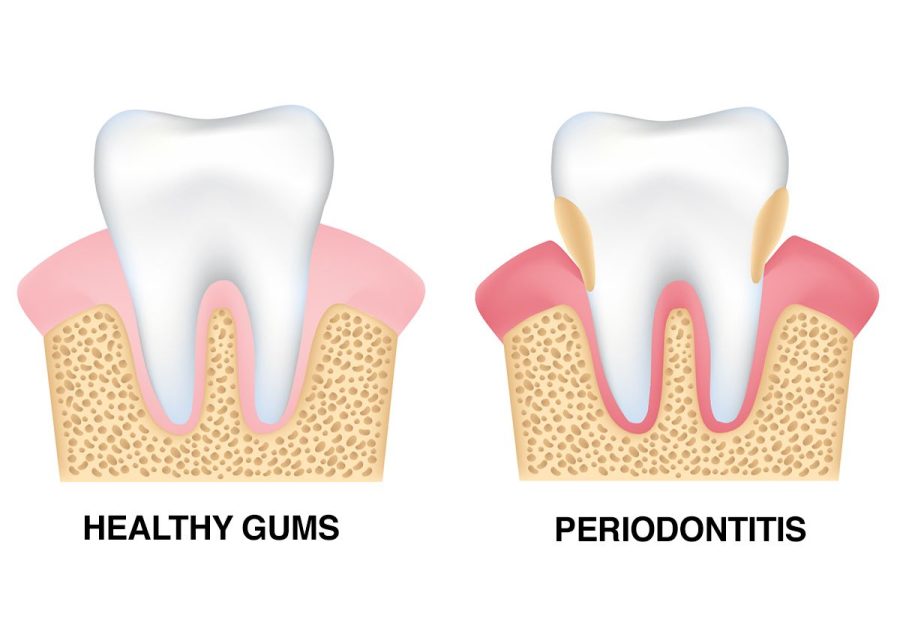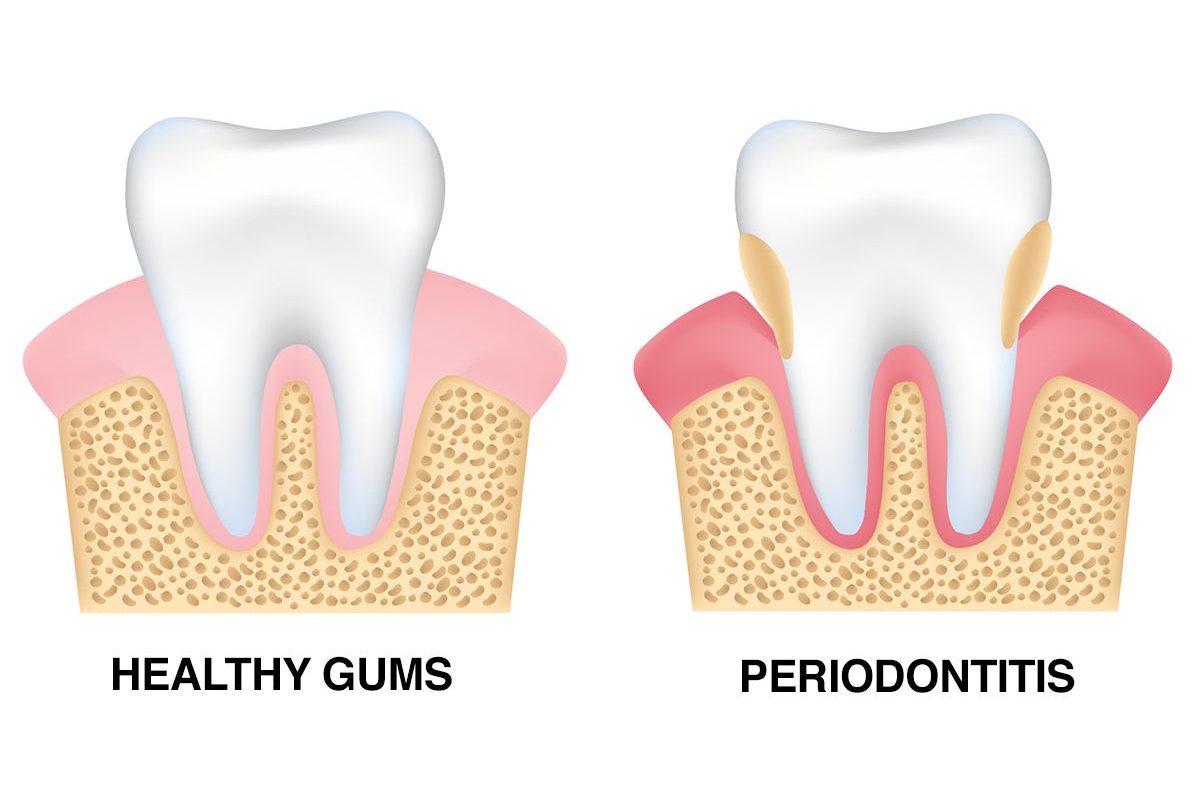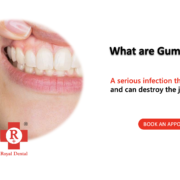Depending on the severity, oral bacteria that causes periodontitis can reside in your mouth for weeks or even months without being detected by you. But once you know you have it, how is this condition related to having dental implants? If you are one of those people who are prone to developing periodontitis, then it’s important that you take special care of your gums and teeth to avoid the risk of losing them. That’s why we’re here to help by providing some information about Implants with Periodontitis or gum disease.
What is Periodontitis?
Periodontitis, also known as gum disease, is a bacterial infection that damages the tissue that holds your teeth in place. It is caused by bacteria in plaque, which forms when you eat food. Plaque is harmless if you remove it from your teeth regularly. But if it’s not removed, the plaque can turn into a sticky substance called tartar, which forms underneath your gum line.

Gum disease can cause the gums to pull away from the teeth. If it’s not treated, it can result in tooth loss, which is why it is important to treat it as soon as possible. Gum disease can also increase your risk for other health problems, such as heart disease and stroke.
Implants and periodontitis
Periodontitis is a disease that affects your gums, which support your teeth and help you bite and chew. When these gums are infected, they become swollen and usually begin to pull away from your teeth, creating pockets of space (called recession) between your gums and teeth. Bacteria and other debris can then build up inside these pockets. And, if the bacteria penetrate the bone and travel up to the nerves, they can cause pain and damage to nearby teeth, as well as other nearby tissues.

When you can’t have implants with periodontitis
If your gum disease is at a severe level, then it may be too risky to have dental implants, especially if you are in the early stages of having periodontitis. You should have your gum disease under control before you have the procedure done. If you try to have implants before you have treated your gum disease, you risk losing more bone tissue and your gums may pull away further.
What to do before having implants with periodontitis
If you have or suspect that you have gum disease, be sure to have it treated before you have dental implants placed. The procedure for implants is more complicated than traditional denture replacement and will require some minor surgery. In addition, it will take a long time for your implants to heal, during which you will need to be careful with your mouth. For example, during the healing process you will want to avoid: – aggressive brushing or flossing that can further irritate your gums – eating hard foods – foods that stain your teeth.
Conclusion
If you have gum disease, you should make sure to get treatment before having dental implants placed. If you have gum disease, you should make sure to take good care of your gums and teeth. This includes cleaning your teeth regularly and visiting your dentist for regular checkups. If you have gum disease, make sure to brush and floss regularly. Also, avoid foods that stain your teeth, and visit your dentist for regular checkups. If you do, you can prevent gum disease from getting worse and avoid having to take implant surgery off your list of possible treatments.






